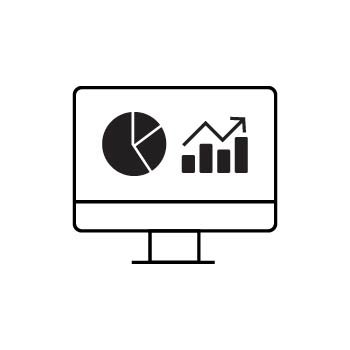Understanding Google Search Console and How to Use It
Google Search Console is a powerful, free tool from Google that shows you how your website appears and performs in Google Search results. Whether you are a photographer, small business owner, or marketer, these insights can help you see what’s working, fix problems, and improve your site’s visibility.
Please Note: Zibster is not affiliated with Google. Our Support Team can help you verify your site with Google Search Console. For questions about how to use Google Search Console, please contact Google Support directly.
Pro Tip
For more in-depth training with Google Search Console, visit Google Search Central.
STEP ONE
Understand What Google Search Console Does
Google Search Console provides detailed information about how your site is indexed and displayed in Google Search. It can help you:
- Track keyword performance
- Identify indexing issues
- Monitor click-through rates
- Submit updated sitemaps for faster indexing
- Review Core Web Vitals and page experience metrics
Why Use This: This is your main tool for seeing how Google views your site. It helps you spot problems early, track your search visibility, and find ways to get more visitors from Google.
STEP TWO
View Your Insights
Search Console Insights combines data from Google Search Console and Google Analytics (if connected) into one simple dashboard.
What You’ll See:
- Recent performance highlights – Top-viewed pages and traffic trends
- Newly trending content – Pages or posts gaining sudden attention
- Traffic sources – How visitors are finding your site (search, direct, referrals, social)
- Top search queries – Keywords people typed into Google to find you
- Referring sites – Other websites sending visitors your way
- Audience behavior – Time spent on page and engagement patterns
Why Use This: It’s a quick way to see what’s working right now so you can promote popular content, catch rising trends, and create more of what your audience wants.
STEP THREE
Use the URL Inspection Tool
This tool lets you manually check a specific page on your site to see if it’s indexed by Google. You can also request indexing if it’s not.
Please Note: Requesting indexing does not guarantee that Google will add the page to its index.
Why Use This: If you’ve just published or updated a page, this helps you confirm that Google knows about it and gives you a way to request faster indexing.
STEP FOUR
Review Search Results Data
The Performance Report shows how your website performs in Google Search:
- Total Clicks – How many times users clicked your site in search results
- Total Impressions – How many times your site appeared in search results
- Average CTR – The percentage of impressions that resulted in clicks
- Average Position – The average ranking of your site for searched keywords
Why Use This: You can measure your SEO efforts and spot opportunities to improve. If your site ranks well but gets few clicks, you can adjust your page titles and descriptions to attract more visitors.
STEP FIVE
Check Your Queries (Search Keywords)
The Queries tab lists the search terms people used to find your site.
Why Use This: Knowing what people actually search for helps you create content that matches their needs and brings in more visitors. It can also reveal unexpected topics where you’re already ranking.
STEP SIX
Review Page Performance
The Pages tab shows which pages get the most impressions and clicks in Google Search.
Why Use This: By identifying your best-performing pages, you can promote them more, update them to stay relevant, and apply similar strategies to other pages.
STEP SEVEN
Monitor Index Coverage
The Index Coverage Report shows which pages Google has indexed and alerts you to issues that prevent indexing. Common issues include:
- Pages blocked by robots.txt
- Pages with crawl errors
- 404 errors
Why Use This: If Google can’t index a page, it can’t appear in search results. Fixing coverage issues ensures your content has the best chance of being found.
Learn More: What Is My Google Page Index Report Telling Me
STEP EIGHT
Add Your Sitemap and Blog Feed
Every Zibster website includes:
- XML Sitemap – Lists all important pages on your site
- RSS Blog Feed – Lists recent blog posts (if you blog)
You can submit both in the Sitemaps section of Google Search Console.
Why Use This: Submitting your sitemap helps Google find and index your content faster, so your updates and new posts can appear in search results more quickly.



